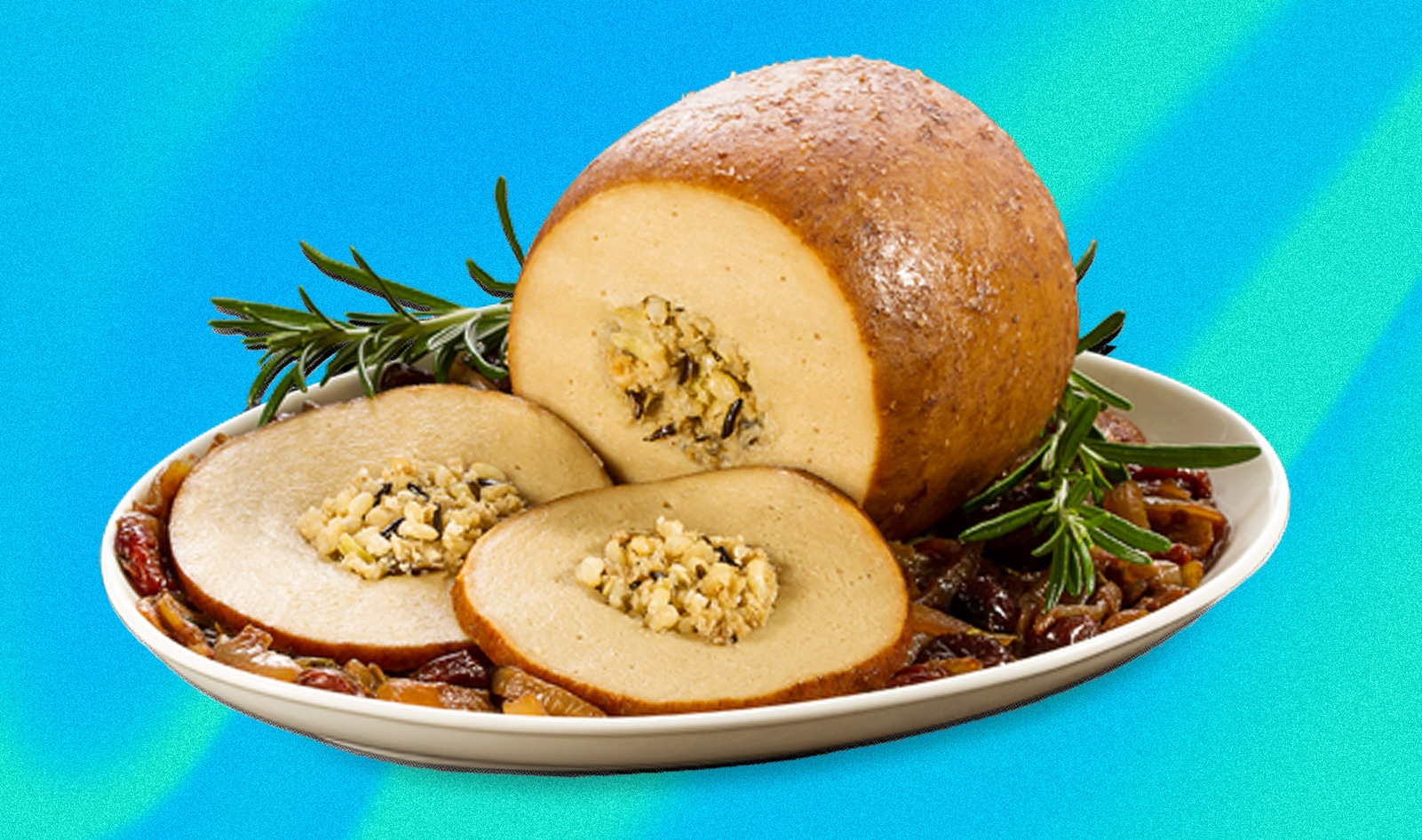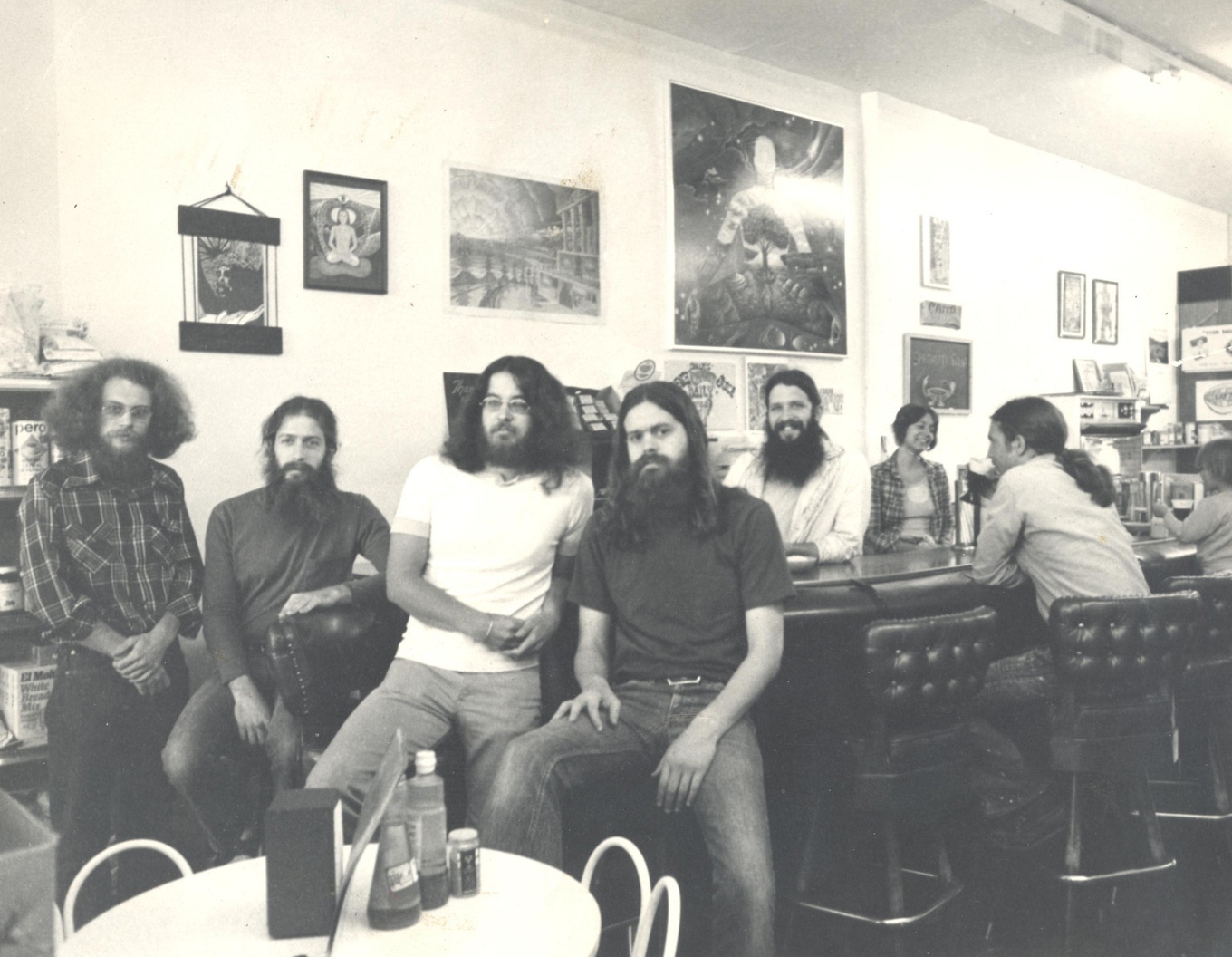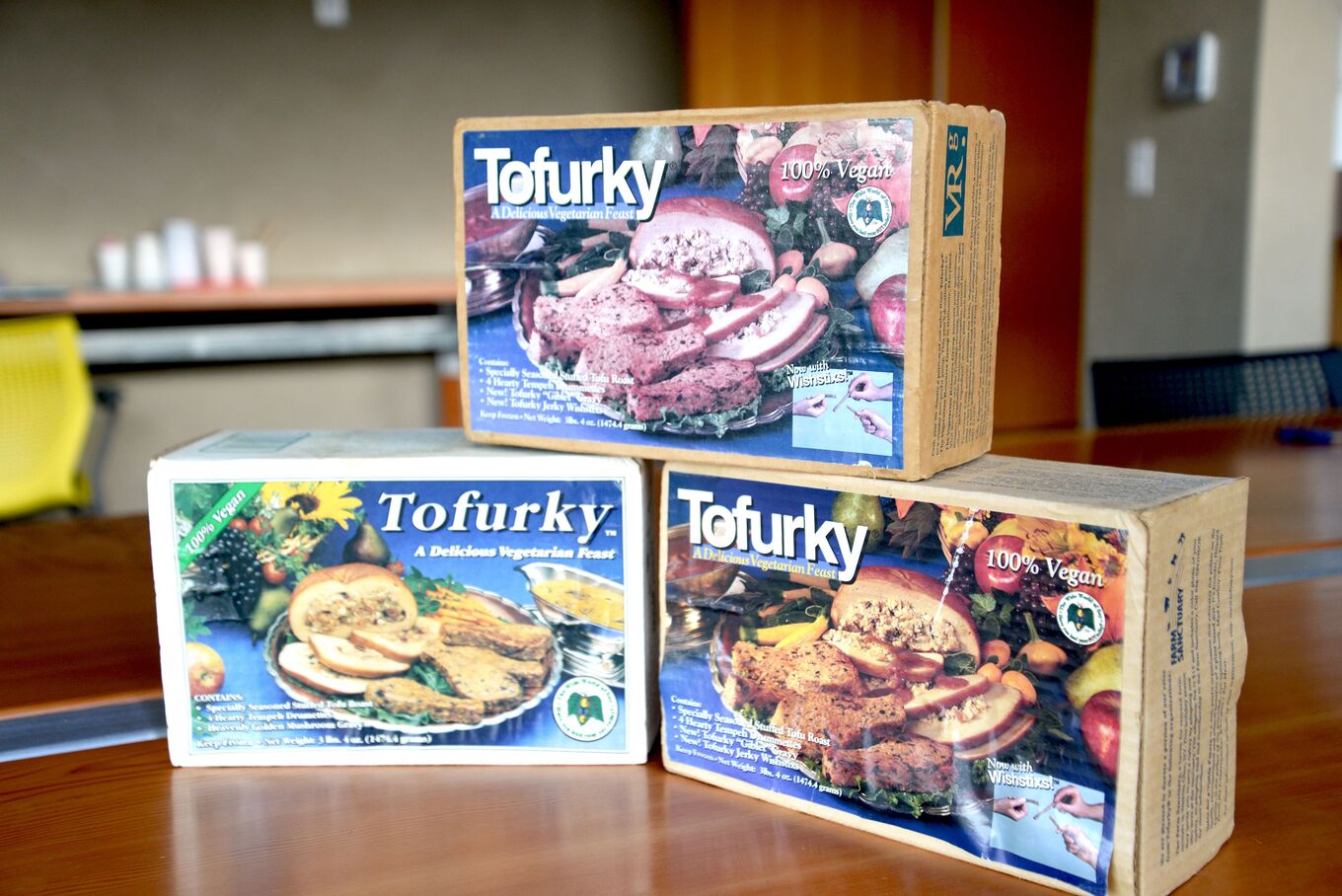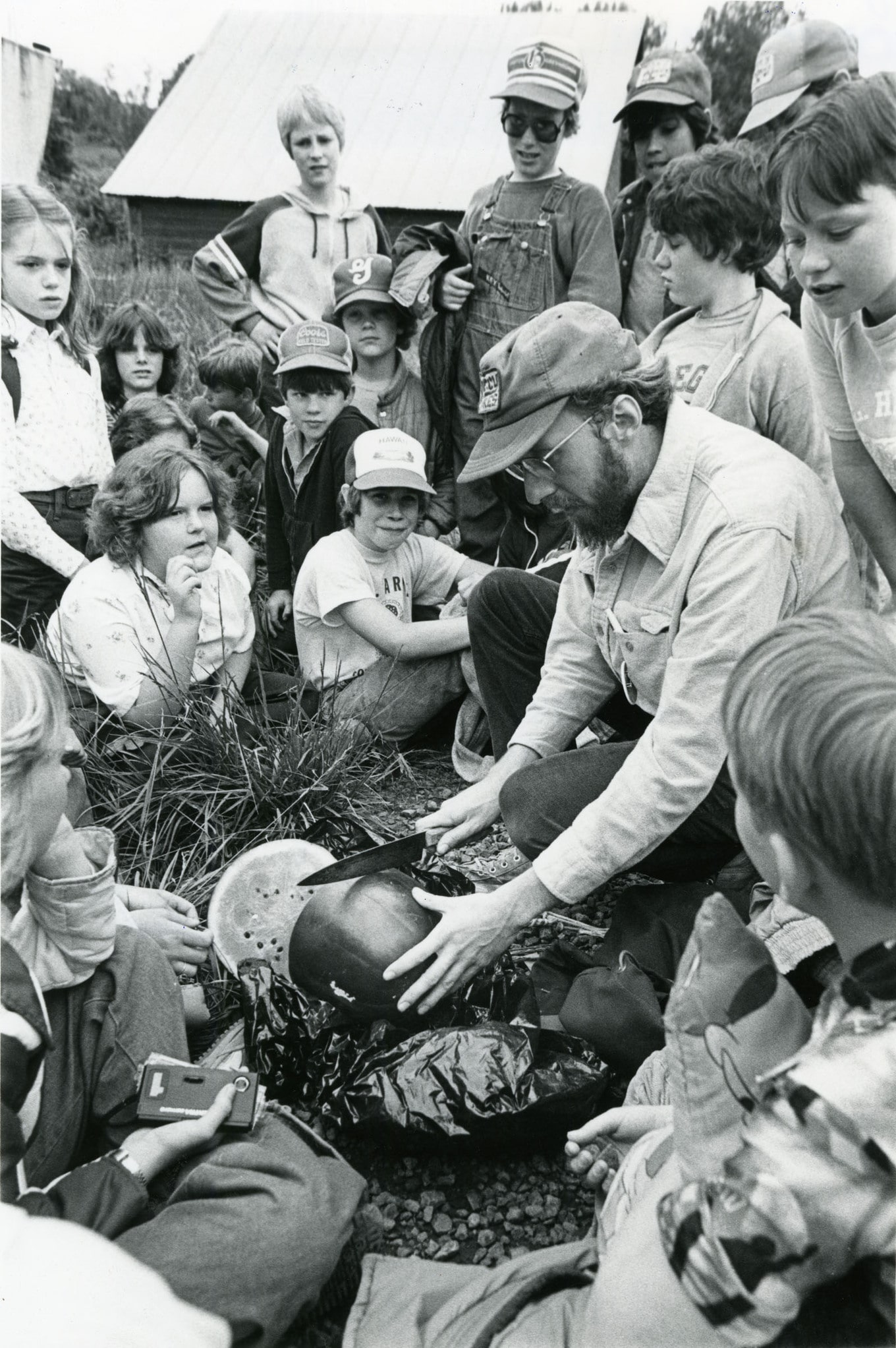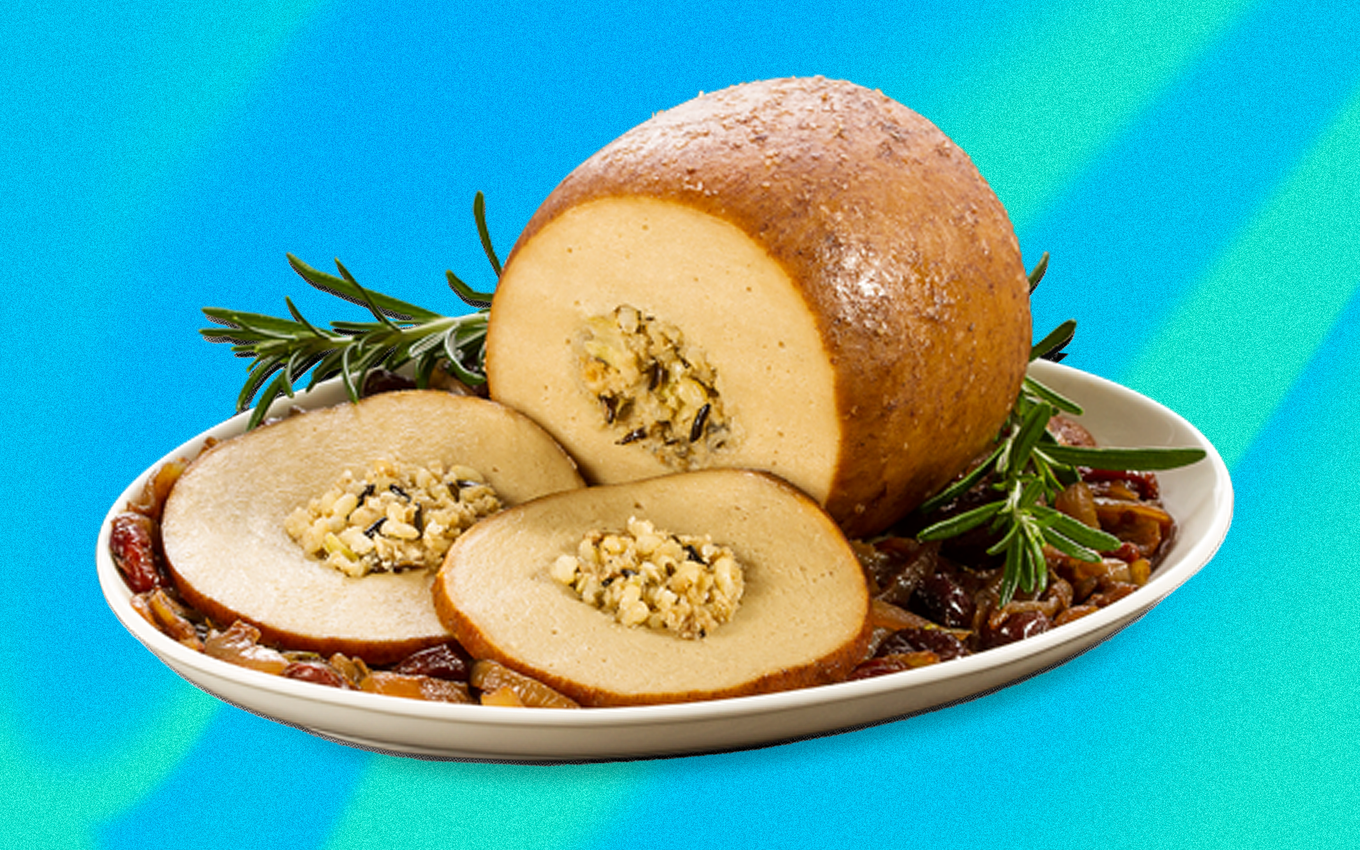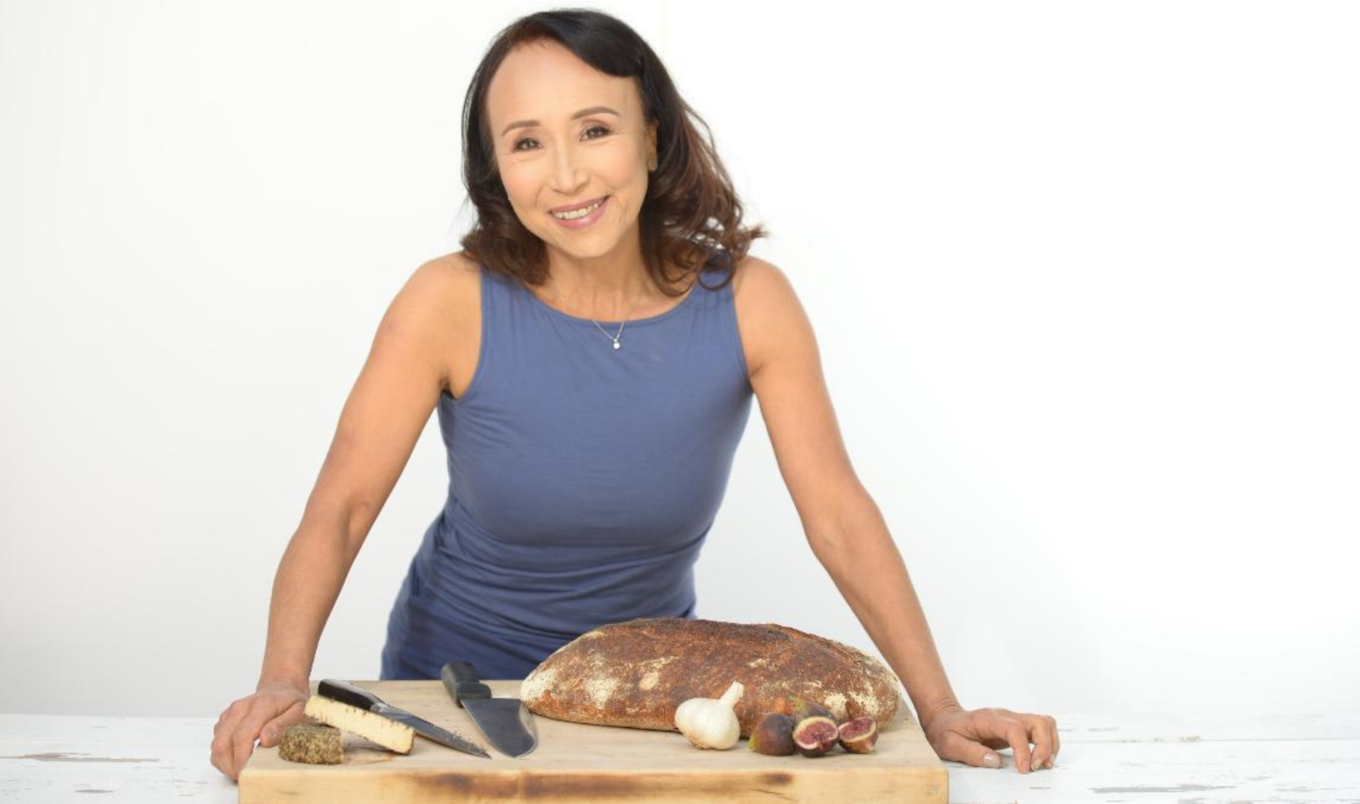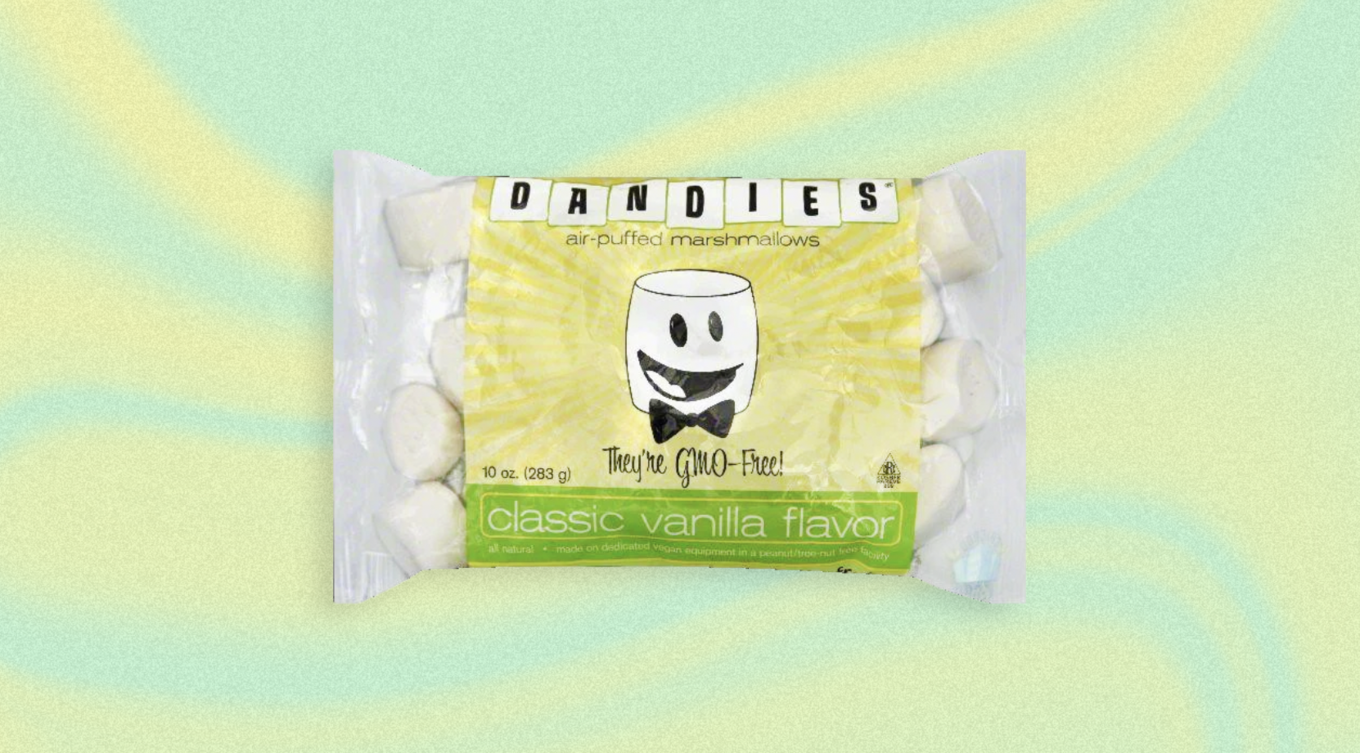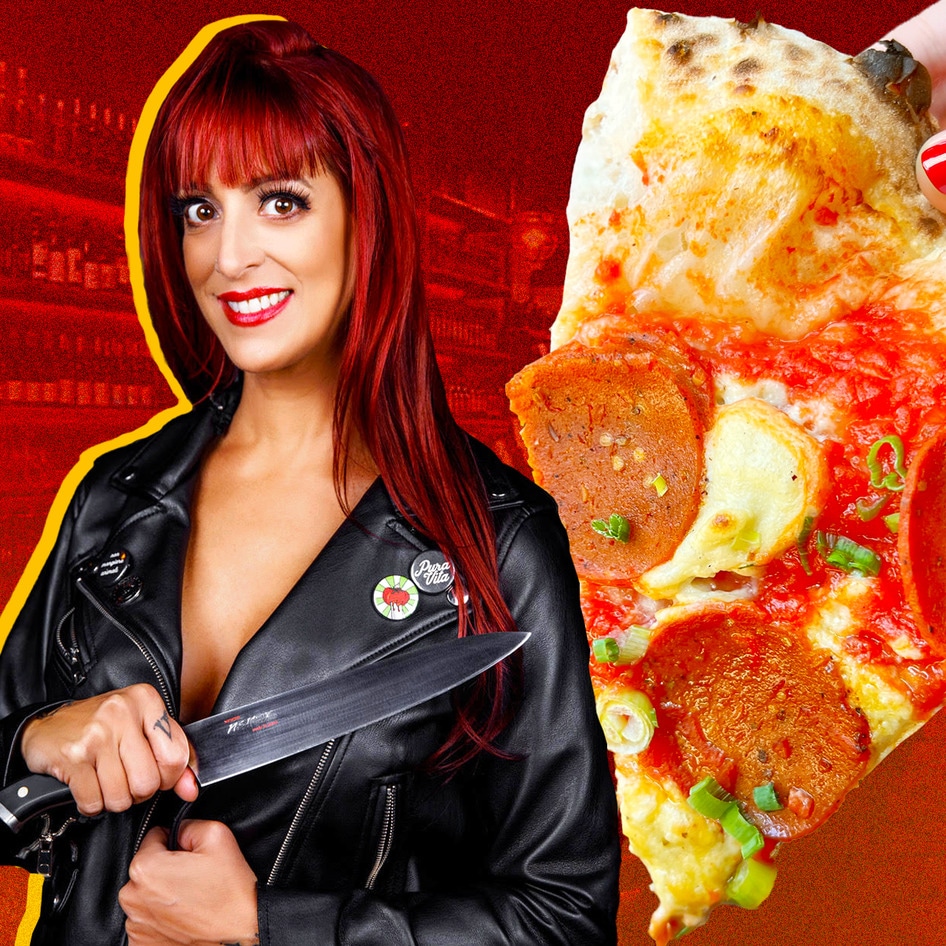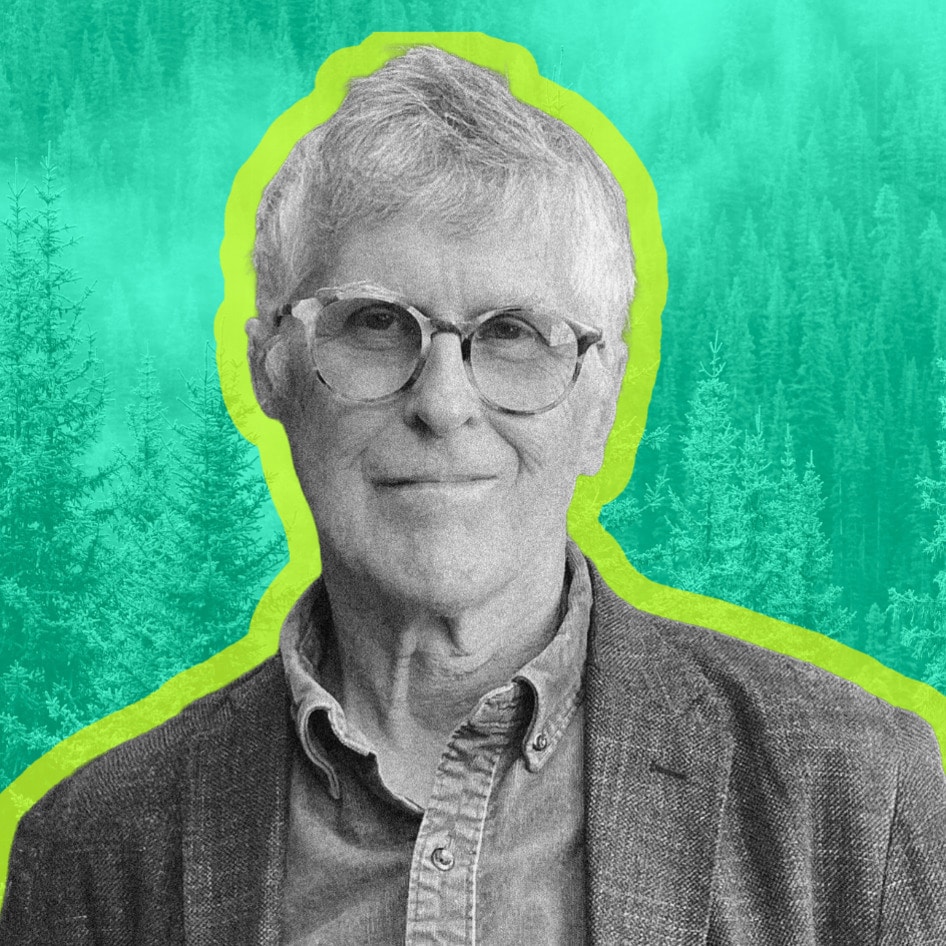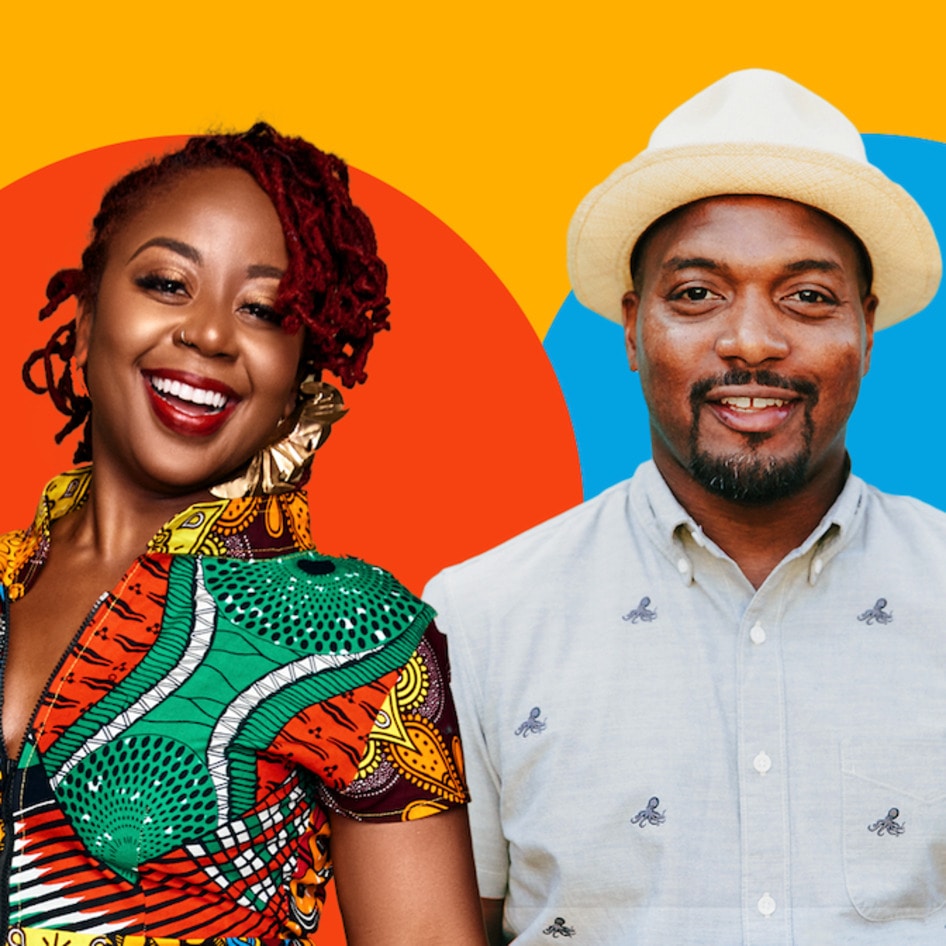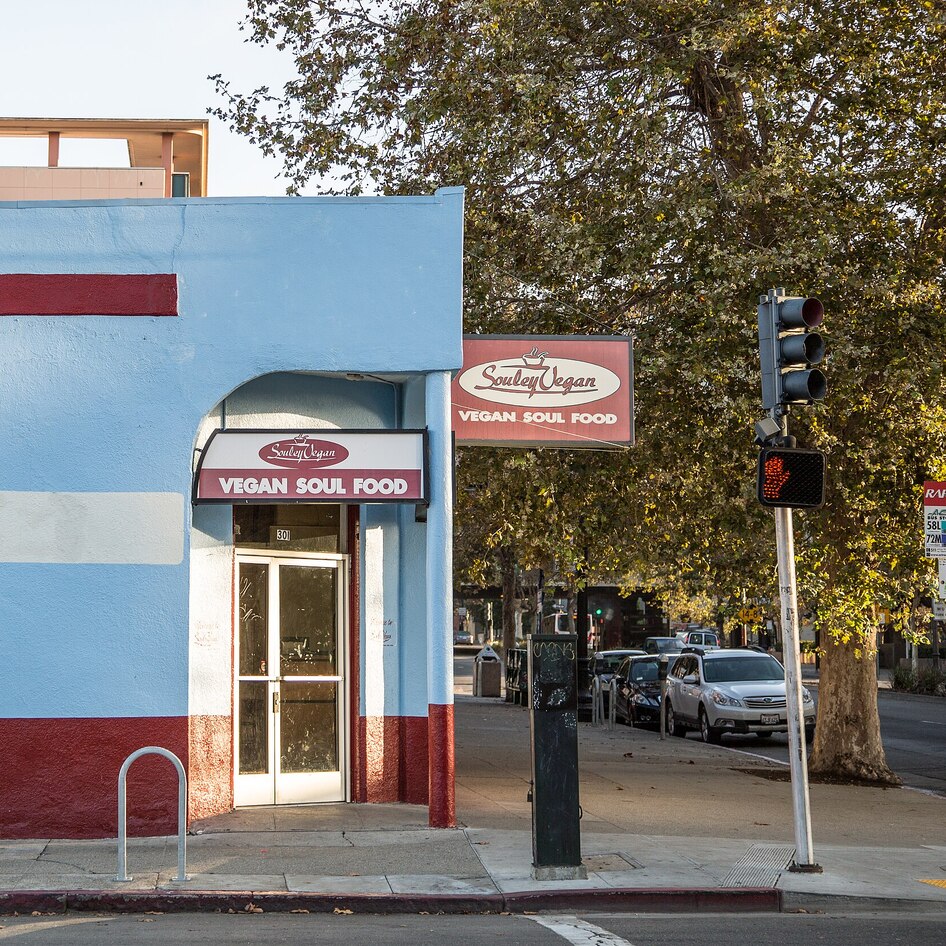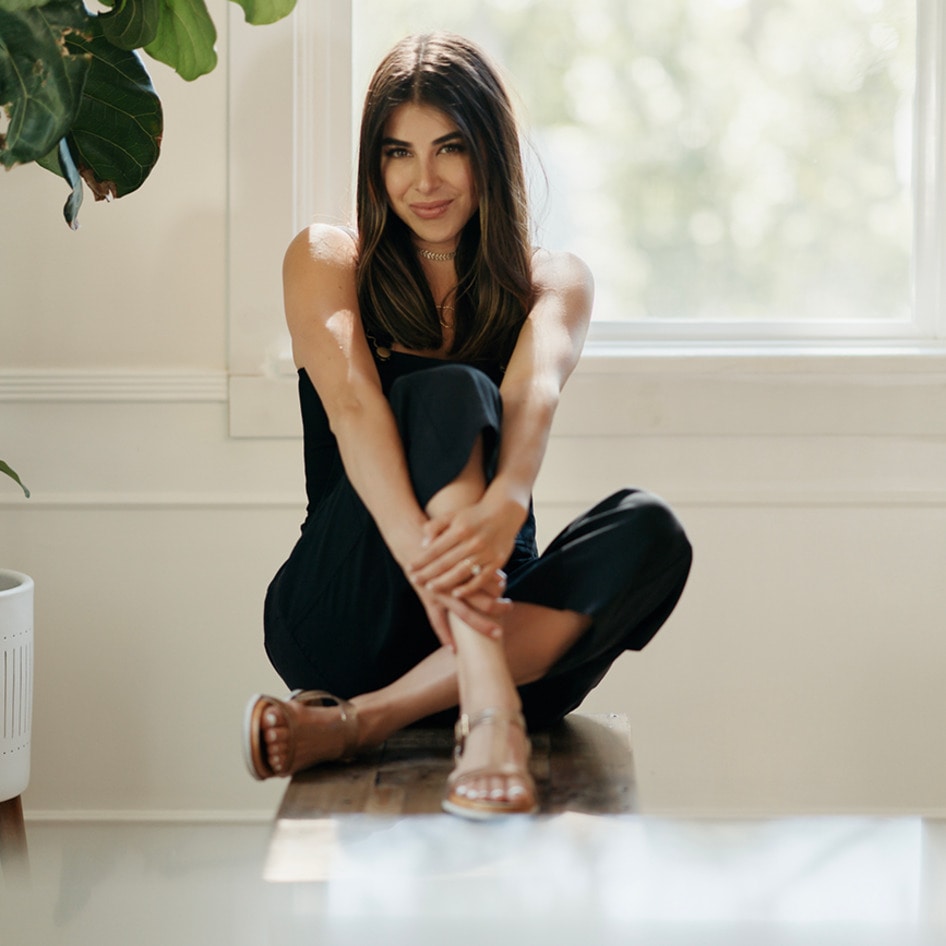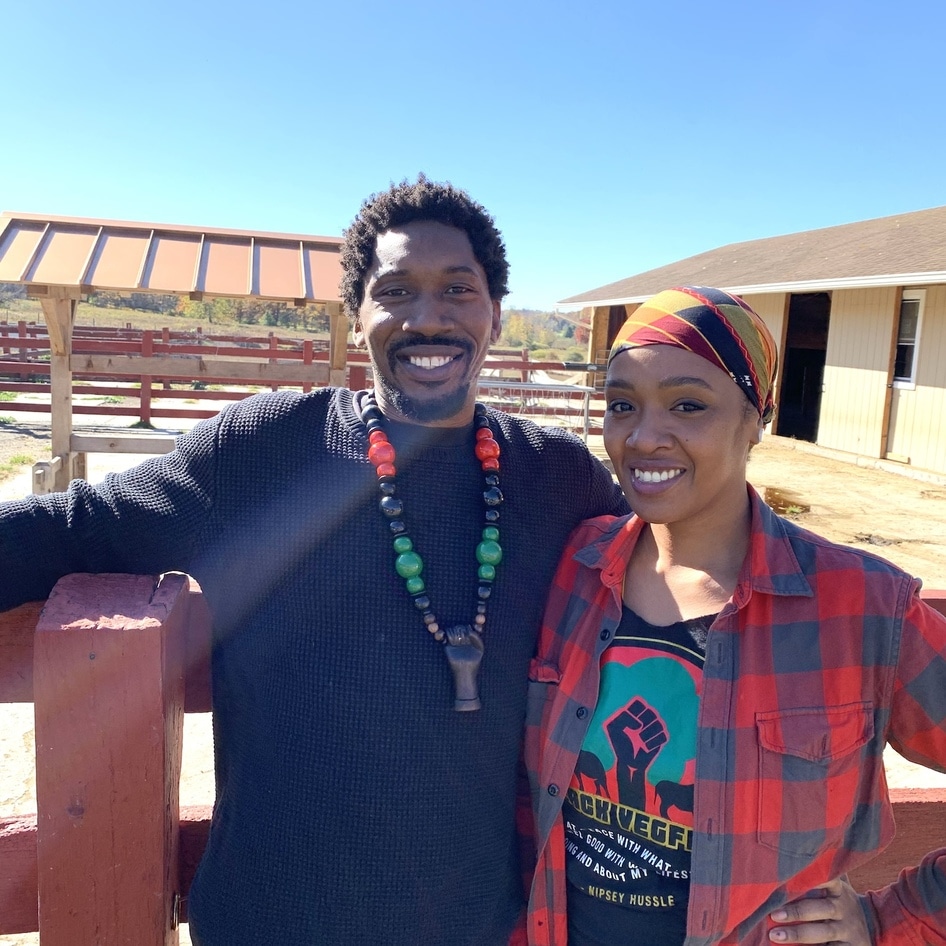Let’s set the scene. Imagine a natural foods store in 1995. On the store shelves are a couple of dusty rows of soy milk, if you were lucky. If you weren’t so lucky, powdered soy milk. A few varieties of refrigerated tofu or buckets of murky water with tofu bobbing in it that would fail all modern hygienic standards.
Compare that dismal scene with the explosion of animal-free delights available today at everything from conventional grocery stores to big-box warehouses and the difference is staggering. It seems like non-dairy milk has now muscled out dairy milk in the refrigerated section, and instead of one or two cheese-like facsimiles, we have rich, complex varieties that can easily hold their own on the most beautiful of cheese boards. Not to mention the meaty strips, slices, sausages, patties, and whole slabs constructed from everything from tofu and wheat gluten to jackfruit and pea protein.
So how did we get from Point A to Point Z, from gathering dust on the shelves of specialty stores to the super-popular products your edgy niece might style creatively for her Instagram shots? The answer: through grit, heavy-lifting, innovation, curiosity, a willingness to fail, and, most of all, dedication to changing the world.
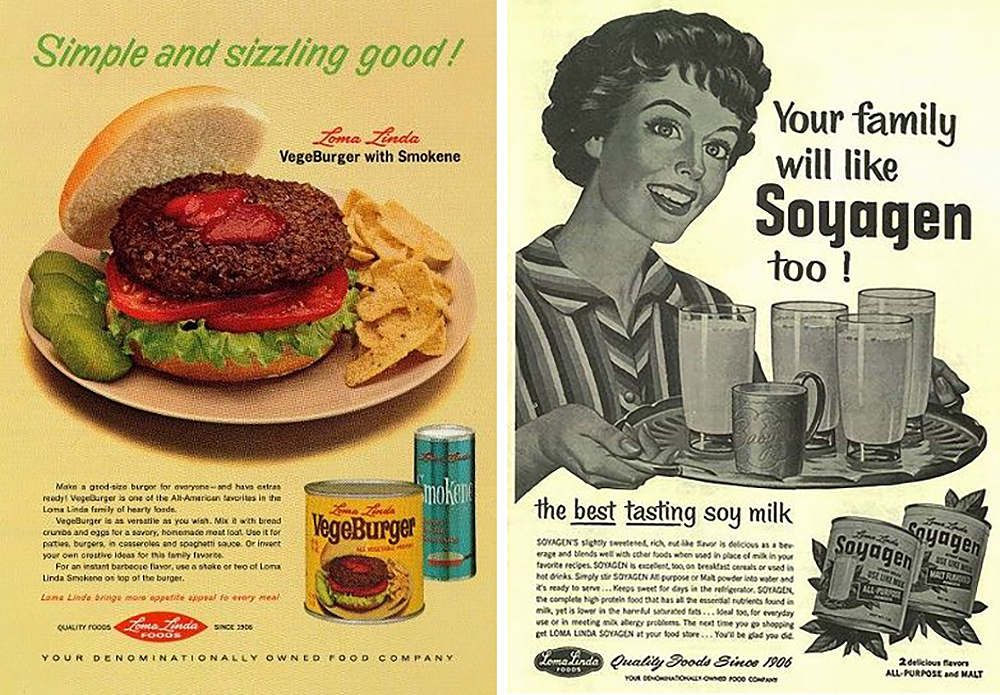 Loma Linda
Loma Linda
How it all began
While meat alternatives have been developed for thousands of years throughout Asia (primarily for Buddhists in the form of tofu, seitan, and tempeh), commercially produced meatless products are much more recent. Estimated to have begun in the 1890s, Loma Linda Foods was founded first as the Sanitas Food Company by Dr. John Harvey Kellogg. Kellogg, a vegetarian physician, developed products like a peanut-based mush called Nuttose for the patients at his world-famous health resort, the Battle Creek Sanitarium. The Seventh-day Adventist partnered with his brother in the development of his eponymous brand of cereals, including their famous cornflakes.
The sugary flakes you see in the cereal aisle today are a far cry from Dr. Kellogg’s original vision, but the staying power of the brand says something about how products evolve to meet consumer demand. The natural products industry of the mid-1970s, which included both personal care products as well as organic animal-based grocery items and vegetarian products, represented $2.4 billion. By 2020, vegan food products in the US alone were responsible for $7 billion in retail sales, growing twice as fast as the overall food market. Humble beginnings aside, there is no denying that the winds of change have forever shifted the industry.
Following their hearts
Bob Goldberg, co-founder of legendary plant-based company Follow Your Heart, may think of himself as a hippie, but he is far from being a throwback. Being both ahead of the curve and willing to play the long game are two facets of his approach that have contributed deeply to his brand’s success. Follow Your Heart, which Goldberg founded with three friends in 1970, is still an iconic and popular Los Angeles-based market and café, but today the brand is better known as a pioneering manufacturing powerhouse, selling vegan products like dips, dressings, and cheeses internationally. With humble origins as a seven-seat sandwich and juice bar in the back of a natural foods store, Follow Your Heart Café found success as Angelenos stopped in for unique meatless cuisine. In 1988, they created manufacturing arm Earth Island to meet growing demand for the café’s signature egg-free mayonnaise, Vegenaise. While available as a popular condiment in the café and market starting in the 1970s, it wasn’t until nearly two decades later that Vegenaise was available nationally.
During those early years, Goldberg and the Follow Your Heart team had to figure things out on their own. There is even a bit of intrigue behind their most well-known commodity. After the café’s original mayonnaise supplier was caught by the FDA removing labels from commercial egg-based products and passing them off as being plant-based, they had to develop an alternative that they could produce on their own from scratch. Trial after trial, they finally developed a creamy, rich version that met their standards. Goldberg remembers buying broken pieces of tofu from producers in bulk to make his countless experiments more affordable.
“The product that we were using in the restaurant, which was refrigerated, was fine, but as soon as we tried to sell it as a shelf-stable item, it wasn’t working,” remembers Goldberg. It wasn’t until 1995 that Follow Your Heart decided to try to sell it as a refrigerated product for the retail market. This would prove to be a challenge at the time, since consumers were accustomed to grabbing their jars of mayonnaise off the shelf. Nevertheless, the company forged forward, and Vegenaise was well-received, even in its unusual store placement.
Goldberg laughs as he recounts the trials and tribulations of getting on store shelves, but it’s clear that some of the success is due to an attitude of curiosity, determination, and playfulness. “It was all learning all the time; it was very exciting,” Goldberg says of those early years.
“Not that there weren’t challenges. It was thrilling. We got an enormous amount of encouragement from our customers and great feedback. When you get that kind of feedback about products changing people’s lives, it’s easy to stay motivated.” —Bob Goldberg
Today, Goldberg’s biggest piece of advice to new entrepreneurs is perhaps unsurprising. “Follow your heart,” he says. “This is always my number one piece of advice and my number 10. We didn’t get to where we are quickly or without obstacles, but because we were always guided by a sense of mission and doing what we loved, we never gave up.”
An overnight success, 15 years in the making
The iconic Tofurky roast, which broke barriers for holiday tables worldwide, had its start officially in the mid-1990s, but founder Seth Tibbott’s story goes back way earlier. The quixotic nomad wandered about after college in the early 1970s, having read Frances Moore Lappé’s Diet for a Small Planet. The book made such an impression on him that he went vegetarian and visited The Farm in Tennessee—an “intentional spiritual community” based on the principles of nonviolence and respect for the earth—which planted the early seeds of veganism for him.
In 1980, Tibbott invested $2,500 in a tempeh-making enterprise from which he eked out a living supplying local co-ops and restaurants. He kept at it, making his tempeh in various rental kitchens until he nearly burned down the co-op kitchen he was renting when he forgot about a 15-gallon pot of soybeans simmering on the stove. Thankfully, it was discovered before any serious damage occurred, but, as Tibbott says with a laugh, “It was the gentle push I needed to move my production kitchen to a bigger facility, because I was making enough tempeh at that point that I had outgrown that space.”
For 15 years, Tibbott bootstrapped it until paydirt struck in 1995 with an enthusiastic reception for his new idea, a Thanksgiving roast for those who didn’t eat stuffed birds. The original Tofurky Roast first took form in the shape of a log, and that first year he sold 818, a number that far exceeded his expectations. Today, Tofurky has sold 7.5 million roasts. For Tibbott, the moment he knew he made it was when his Aunt Rosie, who told him no one was going to buy his products when he first started in 1980, called him 20 years later to excitedly share that Tofurky was an answer on an episode of Jeopardy!. “The years rolled by, and it sort of looked like she was right,” Tibbott says of the early days of slow sales. “But after the roasts successfully launched, that was a game-changer. And Aunt Rosie was so happy for me.”
It’s not that there weren’t obstacles to overcome. The original roasts, priced at $35 for eight servings, cost more than retail outlets thought would be feasible to sell to already skeptical consumers.
“Our second year of selling the roasts, a Seattle grocery chain reluctantly took one, meaning a single Tofurky roast, to see if they could sell it. They sold it and told us to bring in two the next day. And I guess it just kind of snowballed from there,” Tibbott says.
As the brand grew, they had PR companies try to get them to change their name to something less jokey, but Tibbott wouldn’t hear of it. “Yes, sometimes we were a punchline, but our name was being referenced in TV shows, movies, novels—we went deep into the culture, where no other vegan brand had gone. Tofurky became the poster child of the herbivore movement.”
Today, Tibbott’s stepson Jaime Athos helms the ship as CEO, and in 2023, Tofurky was acquired by Morinaga Nutritional Foods, a partnering Japanese brand from which Tofurky sourced its tofu. “We’re very proud of what we’ve achieved thus far as an independent and family-operated company,” Athos said. “But as we enter our next stage of growth, Morinaga will provide the platform needed to help us expand more aggressively in the US and beyond.”
And as the company gears up for a new future, Tibbott acknowledges how much a depth of conviction sustained him during the lean years. “The mission will keep you going even when the money isn’t there. And keeping your enthusiasm and passion alive is everything in business. Just show up every morning. Every day that you do, you’re learning and growing.”
Keeping the wheels turning
Long before Miyoko Schinner won a high-profile 2021 food-labeling lawsuit, she was slogging it out as an entrepreneur in various iterations. The French-trained chef quickly became a beloved fixture on the vegan scene thanks to her San Francisco restaurant Now & Zen, her 1990s brands like The UnTurkey (a rival and contemporary of the Tofurky roast), and non-dairy whipped cream, Hip Whip. But it was a struggle to create a brand with staying power. The UnTurkey, for example, had enthusiastic devotees, but Schinner was unable to afford the scaling up she needed to meet demand. So the business folded under the weight of her vision—just a little too ahead of its time. When she was finally invited to pitch to a group of investors in the mid-1990s, she remembers how she was complimented on her storytelling, but offered no investment funds, leaving her utterly deflated.
Fast-forward to a chance meeting with the Book Publishing Company about publishing a collection of dairy-free cheese recipes she’d been developing. Having worked with different plant cheeses at Now and Zen, Schinner had tried some very basic nut-based cheeses at a raw foods restaurant that reignited her interest in cracking the cheese code. She started experimenting with fermenting soy and cashews to get closer to a dairy flavor and texture profile and held a cheese-making demonstration at the San Francisco Vegetarian Festival to a packed room. “To my surprise, people showed up and were blown away by the cheeses,” Schinner says. “Someone asked if I was going to write a book about it, and it was the first time I’d thought about it. Then I went home and I thought, ‘Huh, why don’t I write a book?’”
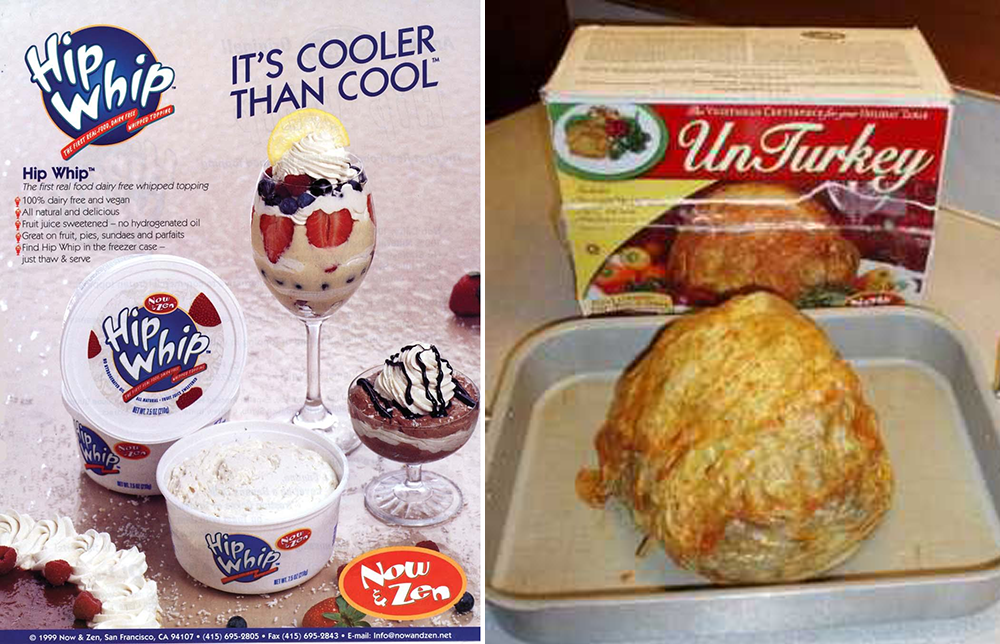 Miyoko Schinner/Pamela Wood Browne
Miyoko Schinner/Pamela Wood Browne
Her iconic, boundary-busting Artisan Vegan Cheeses was published in 2012. “I was afraid to write it. I was afraid to repeat my history of failure. I figured this was my last hurrah,” she says. “The cookbook put me back on the map. I still had no intention of starting another business. I was so afraid that I would fail again.” Instead, the book became a best-seller, and, fueled by the interest in replicating her recipes, Miyoko’s Creamery was born.
Today, Schinner has moved on from her revolutionary company that pushed plant-based cheese wheels, butters, and cream cheeses into the mainstream. But not before leaving an indelible stamp on the plant-based business world that is helping the world has finally started to catch up to Schinner’s vision.
These days you’ll catch her on her Northern California farm, starring in her own plant-based cooking series The Vegan Good Life with Miyoko and Netflix’s riveting new documentary You Are What You Eat, and chronicling her globetrotting culinary adventures on Instagram. With such widespread admiration and a storied and accomplished life, it can be easy to forget that Schinner has hustled, failed, and nearly quit on her road to the top. But through it all, she’s never lost focus of the importance and potential of the power of a compassionate collective. “To me, this is a huge opportunity for us to create the biggest vegan community—one that truly cares for people, that brings people together because of shared values. It’s a community of people that share the same values that we need to live compassionately. That is really what excites me.”
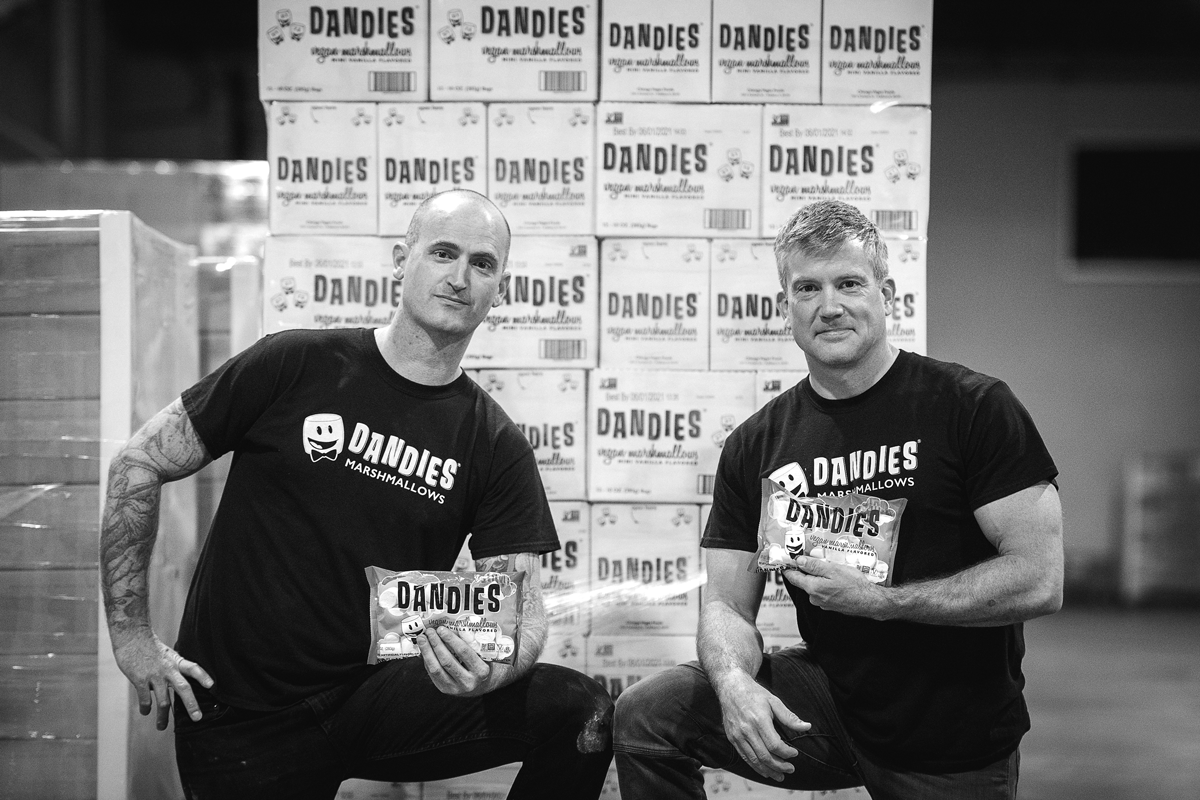 Hard-fought battle for a pillowy-soft product
Hard-fought battle for a pillowy-soft product
When you think of marshmallows, you may think of campfire s’mores with Dad or a warm cup of cocoa lovingly served by Grandma. So it may come as a bit of a surprise to learn that Chicago Vegan Foods, the premier vegan brand cranking out these soft-and-chewy confections, was founded in 2001 by Ryan Howard, an animal-rights activist barely out of college. Howard, along with business partner Dan Ziegler, originally started Chicago Soydairy, initially operating out of Howard’s basement. While their first product, organic soy milk, was well-received by local restaurants, they found more growth potential in the world of dairy-free cheese and ice cream with their early Teese cheese brand (still available in restaurants today) and Temptation line of ice cream, now sold at about 350 ice cream shops and restaurants across the country.
Temptation started when their contact at a popular Chicago café mentioned that what they needed more than soy milk was non-dairy ice cream. Though he’d never made ice cream before, Howard said that they could supply that, too. That night, he and Ziegler ran out and bought as many ice cream machines as they could in February in Chicago. “We had never made ice cream before, but we were young and enthusiastic, going for every opportunity, whether or not it was the most practical thing.”
What the company is now best known for, though, is its Dandies marshmallows, available in a variety of flavors, regular and mini sizes, and, this summer, as a new spreadable fluff. Typically made with gelatin, marshmallows had historically been off-limits to vegans, vegetarians, and people maintaining kosher and halal diets. Howard, whose background was in food engineering, was uniquely trained to understand both how ingredients interact and how to scale up products. And eventually, the need for marshmallows occurred to them. “We really liked the idea of marshmallows because we’d be a unique product and could focus on product and process development instead of marketing,” says Howard.
For activists who didn’t come from a business background, who were self-funded and developing an entirely new product, the learning curve was steep. Howard vividly recalls the worst clean-up of his life—the time he accidentally overheated a 55-gallon drum of syrup for the marshmallows. When the cap was removed, it sprayed hot syrup on the ceiling for two solid minutes. But today, with Dandies sold throughout the US and more than 10 other countries, the brand has become a household name. Despite the company’s mainstream success, its scrappy, DIY ethos remains stitched through everything Chicago Vegan Foods does.
“Aside from there being no book of vegan marshmallow manufacturing, the natural food industry itself was nowhere as developed as it is today. It’s a lot of trial and error in both making our own product, building a brand, and navigating the nascent natural foods space,” Howard says. “At the end of the day, though, our activist background acted as a great fuel for all the energy it required to build our company.”
As they go, Howard expects they will keep doing things their own way, just as they have from the beginning. “We should have failed many times over. Knowing what I know now about how startups work and succeed, we did everything technically wrong,” Howard says. “What we did right was have the drive and passion to make this work, no matter what. In that sense, our greatest, and our best, mistake was starting this company and never quitting.”
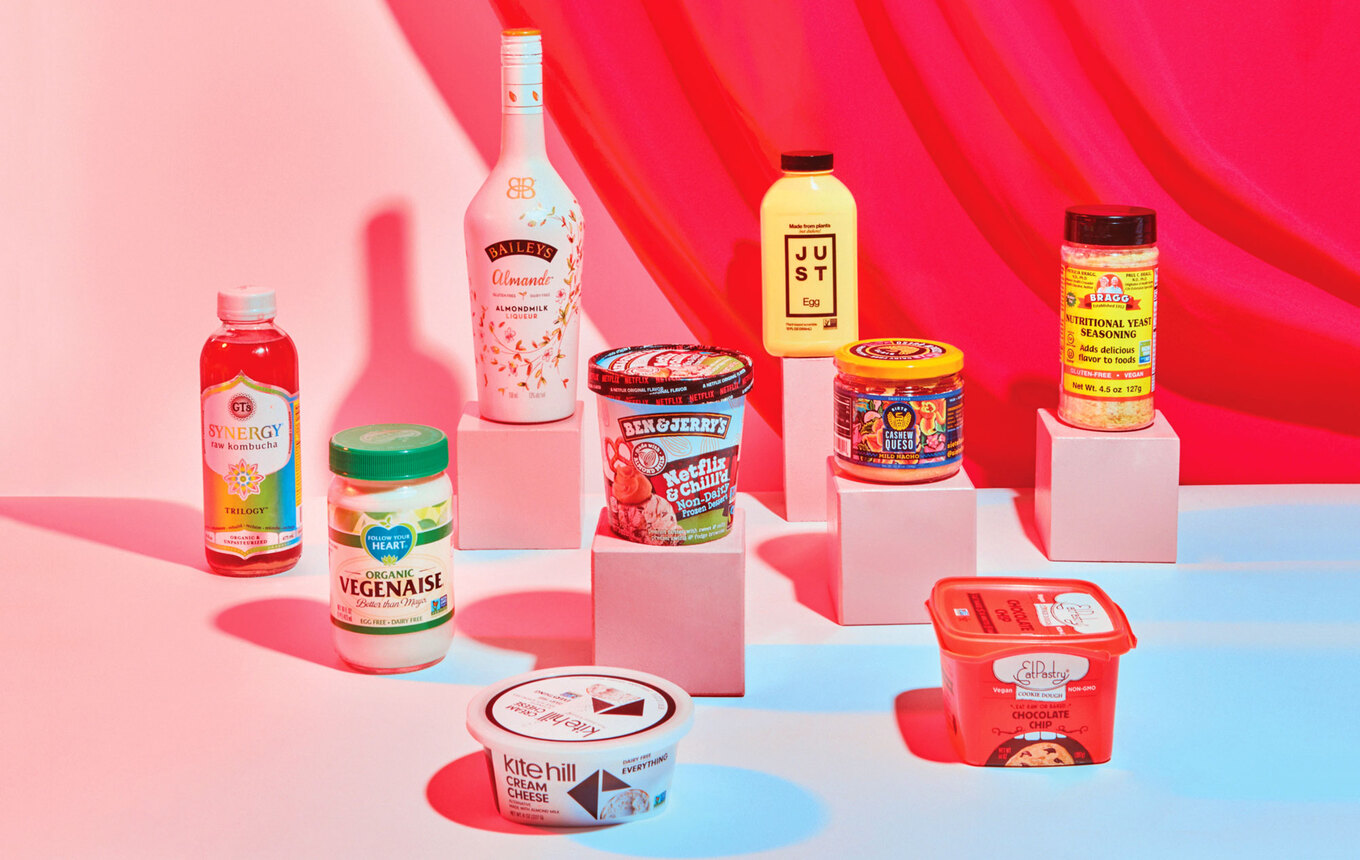 Shelving it
Shelving it
Today, entire swaths of store shelves are dedicated to plant milks and meatless meats, vegan brands are taking up advertising space on massive billboard campaigns and primetime TV, and mega brands like Starbucks, Burger King, and McDonald’s are adding plant-based options to their menus and pushing them to billions of customers each year.
For brand-new plant-based eaters, any other kind of reality could be difficult to imagine. But the enormous progress vegan food has made has emerged from a small, niche marketplace that felt like it would be idle forever. Those early days of unmeltable cheese and ice cream that was more ice than cream are behind us, thanks to the smart, ambitious, forward-thinking entrepreneurs who were, and still are, eager to carve out their own place in the plant-based sphere. Vegans benefit, of course, but as this happens, vegan-curious consumers try and even enjoy these foods, recommend them to friends, and maybe even start cutting animal foods out of their diets, bit by bit.
For Follow Your Heart, Tofurky, Now & Zen, and Chicago Vegan Foods, there was no real roadmap to becoming a sustainable business—let alone a successful one. So they had to be quick on their feet, innovate, and hope that there was consumer demand. The wealth of vegan products we enjoy now is here today thanks to years of passion, drive, curiosity, a willingness to fail and pivot, and perseverance. What exactly is around the corner is anyone’s guess, but all signs point to more innovation and growth as obstacles are overcome and demand continues to expand, thanks to quality products that make a future without eating animals more and more possible each day.
For the latest vegan news, read:
JUMP TO ... Latest News | Recipes | Guides | Health | Subscribe
Here at VegNews, we live and breathe the plant-based lifestyle, and only recommend products we feel make our lives amazing. Occasionally, articles may include shopping links where we might earn a small commission, but in no way does this effect the editorial integrity of VegNews.

